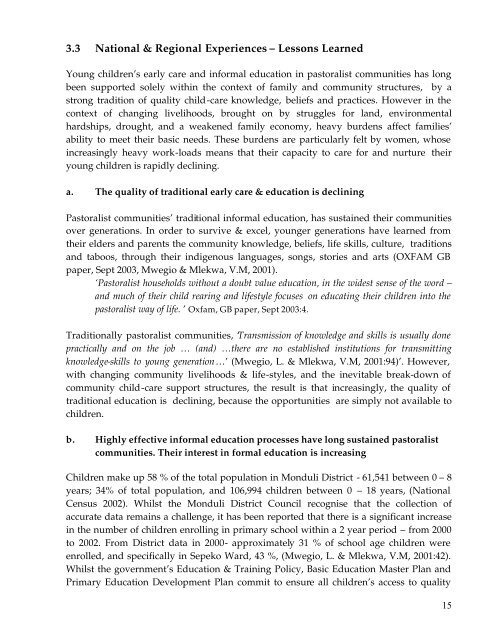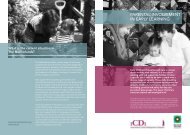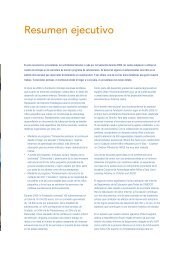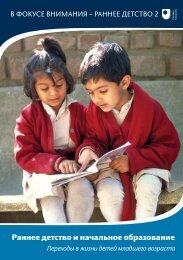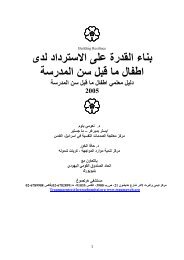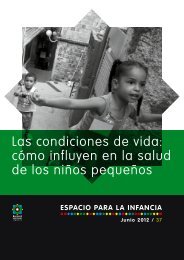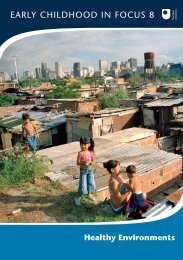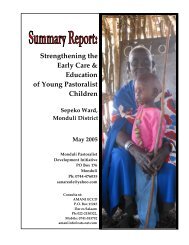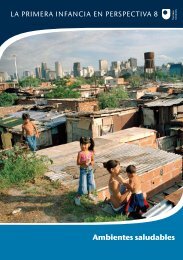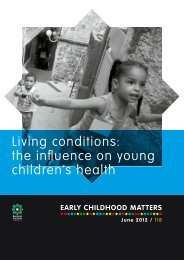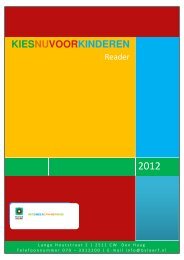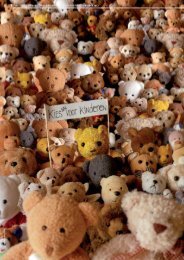Report - Bernard van Leer Foundation
Report - Bernard van Leer Foundation
Report - Bernard van Leer Foundation
You also want an ePaper? Increase the reach of your titles
YUMPU automatically turns print PDFs into web optimized ePapers that Google loves.
3.3 National & Regional Experiences – Lessons LearnedYoung children’s early care and informal education in pastoralist communities has longbeen supported solely within the context of family and community structures, by astrong tradition of quality child-care knowledge, beliefs and practices. However in thecontext of changing livelihoods, brought on by struggles for land, environmentalhardships, drought, and a weakened family economy, heavy burdens affect families’ability to meet their basic needs. These burdens are particularly felt by women, whoseincreasingly heavy work-loads means that their capacity to care for and nurture theiryoung children is rapidly declining.a. The quality of traditional early care & education is decliningPastoralist communities’ traditional informal education, has sustained their communitiesover generations. In order to survive & excel, younger generations have learned fromtheir elders and parents the community knowledge, beliefs, life skills, culture, traditionsand taboos, through their indigenous languages, songs, stories and arts (OXFAM GBpaper, Sept 2003, Mwegio & Mlekwa, V.M, 2001).‘Pastoralist households without a doubt value education, in the widest sense of the word –and much of their child rearing and lifestyle focuses on educating their children into thepastoralist way of life. ’ Oxfam, GB paper, Sept 2003:4.Traditionally pastoralist communities, ‘Transmission of knowledge and skills is usually donepractically and on the job … (and) …there are no established institutions for transmittingknowledge-skills to young generation…’ (Mwegio, L. & Mlekwa, V.M, 2001:94)’. However,with changing community livelihoods & life-styles, and the inevitable break-down ofcommunity child-care support structures, the result is that increasingly, the quality oftraditional education is declining, because the opportunities are simply not available tochildren.b. Highly effective informal education processes have long sustained pastoralistcommunities. Their interest in formal education is increasingChildren make up 58 % of the total population in Monduli District - 61,541 between 0 – 8years; 34% of total population, and 106,994 children between 0 – 18 years, (NationalCensus 2002). Whilst the Monduli District Council recognise that the collection ofaccurate data remains a challenge, it has been reported that there is a significant increasein the number of children enrolling in primary school within a 2 year period – from 2000to 2002. From District data in 2000- approximately 31 % of school age children wereenrolled, and specifically in Sepeko Ward, 43 %, (Mwegio, L. & Mlekwa, V.M, 2001:42).Whilst the government’s Education & Training Policy, Basic Education Master Plan andPrimary Education Development Plan commit to ensure all children’s access to quality15


